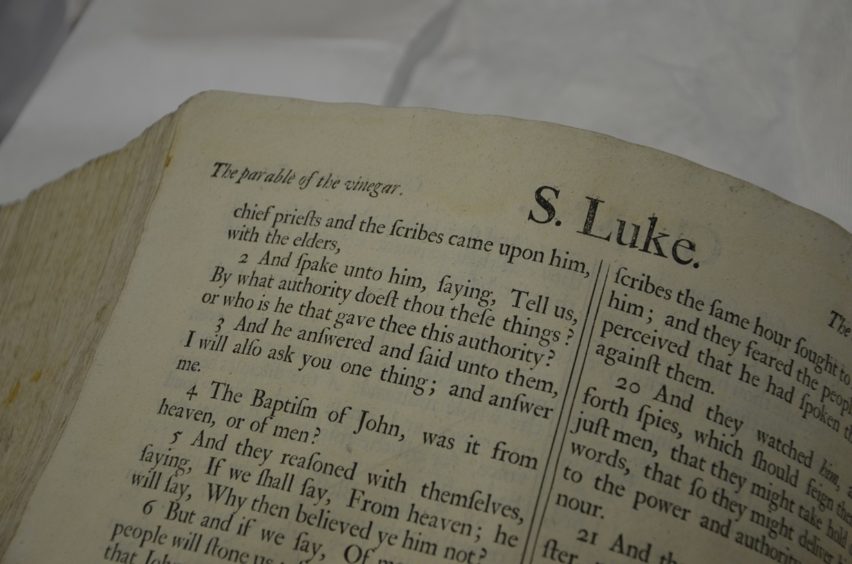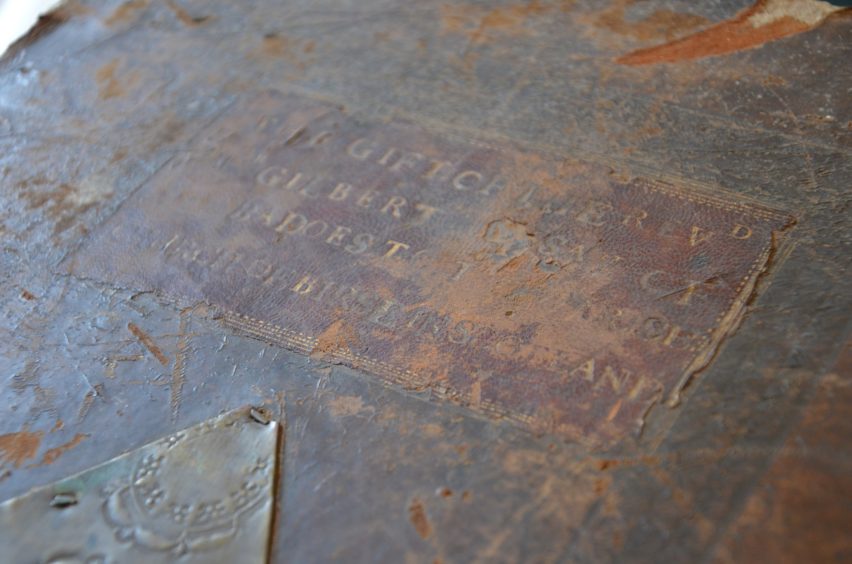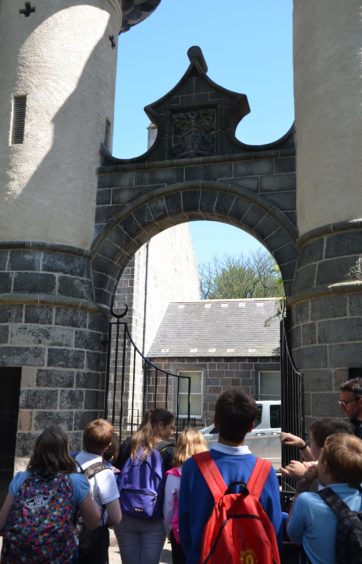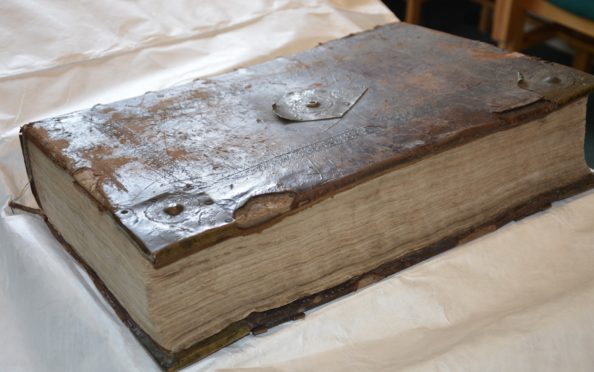It was the version of the King James Bible which provided the derivation of the word “basketcase”.
And it earned the derogatory term “Vinegar Bible”, because the text mistakenly refers to the “parable of the vinegar” rather than the ‘parable of the vineyard’.
But now, a rare book – one of only of a handful ever unearthed in Scotland – has been identified in the community archive in Birse, near Aboyne.
The bible, dating from 1717, was found during the Aye, it wis aabody project exploring the history of Finzean Primary School and links with slavery in the Caribbean.
Regarded as one of the finest printed in the UK, the bible was a lavishly illustrated folio imprint from the Oxford printer John Baskett.
However the edition was let down by a number or errors and omissions, which led to them being known a vinegar bibles, after one of the errors.

The copy in Birse is embossed on the cover with “The gift of The Rev Gilbert Ramsay of Barbadoes [sic] to the parish church of Birse in Scotland”.
Rev Ramsay was from the parish, but spent nearly all his working life in the Caribbean, in Antigua from 1689 and Barbados from 1692, where he was rector of Christ Church until his death in 1727.
He gifted £4,800 in his will to the parish and Marischal College, with annual interest from £500 to build a school in the parish and pay the teacher’s salary, and the same again for a poor fund.
As part of the Aye, it wis aabody project, a community research group has been researching the life of Rev Ramsay and nearly 300 years of school history.

Researcher Sian Loftus said: “While we have been unable to establish with any certainty who Ramsay’s parents were or where they lived, it is clear from the gifting of such a valuable book to the parish that he felt a very close affection with Birse.
“The identification of the bible, which was known to be in the collection, as a ‘vinegar bible’ is one more clue in our search for records into Gilbert Ramsay’s life.’

The Birse bible was recently moved from the community archive to the Aberdeen City and Aberdeenshire Archive, on a temporary deposit.
A spokesman for the archive said: “We are pleased to be able to offer a temporary home for this rare item with its fascinating history, in line with our mission to preserve and provide access to significant records relating to the North East of Scotland alongside the historical records of Aberdeen City and Aberdeenshire Councils.”
John Baskett
John Baskett, born in 1645 in Salisbury, became a powerful character in the world of printing in the 17th and 18th centuries.
In 1711 Baskett, who was by then the King’s printer, joined the Oxford University Press, where he and his supporters were determined to improve both the quality and the appearance of the Bibles being published.
The idea was to produce a folio edition of the King James Bible that would reflect the decisions made by the original translators that had become lost in the intervening years. This Bible would be a presentation piece piece for use in churches and the homes of the aristocracy. Some of the obsolete language would be added into a glossary.
It was meant to be a very special edition. However, when the bible was eventually published in 1717, it was widely criticised by the clergy for its numerous omissions and misspellings.
It became known as the Vinegar Bible because of one such gaffe.
The chapter heading in Luke 20 should have read ‘The parable of the vineyard’. But, instead, it was printed as ‘the parable of the vinegar’.
The work was partially saved from becoming a complete point of ridicule because, in many cases, it was intended to be shown rather than read, and would be displayed prominently in many wealthy homes.
It was richly bound in crimson leather with gilt edging and beautifully coloured.
